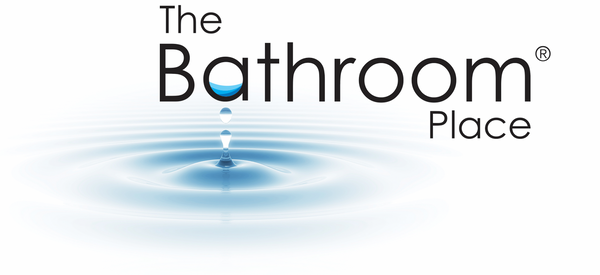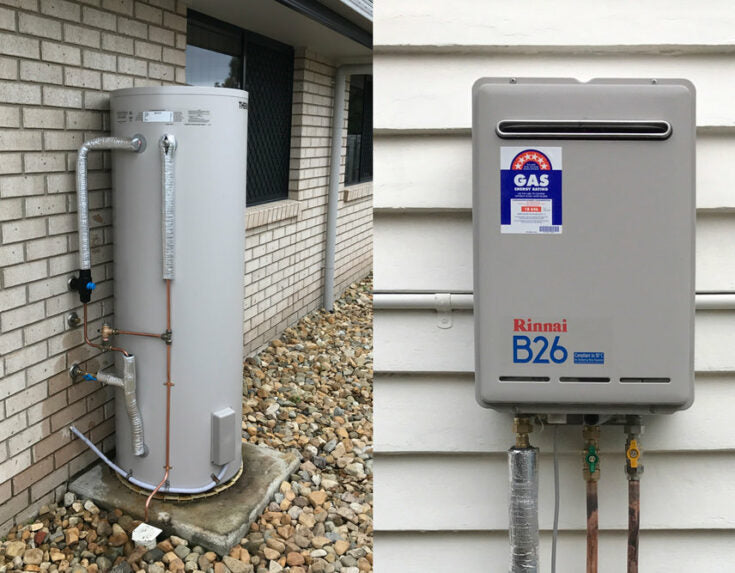Storage or instant hot water system?
It all depends on your requirements. You have to make sure that the unit/s will meet your hot water needs each day especially during peak and simultaneous use. You also have to think about energy usage and long-term running costs.
Instant hot water systems are good for small households and low requirements (no 2 bathrooms or appliances use hot water simultaneously). But if you still prefer this system because of its minimal heat wastage, you can install 2 or more such units so you can be sure you’ll be having enough amounts of hot water.
If you choose a conventional storage water heater, make sure that the energy source is more affordable (e.g. natural gas, LPG). Electric-powered ones (whether storage or instantaneous ones) have high operating costs which can translate to hundreds of dollars of additional expenses each year. For economic and sustainability reasons, you can also find solar-powered units that can be boosted by gas.
Aside from the unit itself, it’s also good to pay attention to the installation of the hot water system. Qualified plumbers and/or gas fitters should do the job to ensure safety and reliability. When it comes to pricing, it’s good to ask for upfront quotes (are the parts already included?).
You can also ask for available rebates and incentives in your area when purchasing a hot water unit for your home. You might get a better deal if you choose solar-powered units. Apart from saving money upfront, you also help the environment because you’re using energy from a renewable source.

Choosing a hot water system
In general (no matter the type or brand of your hot water service), the choice depends on usage (household size and number of appliances that require hot water). As a result, storage hot water systems are ideal for large households and those that require large amounts of hot water at peak times. On the other hand, instant hot water systems are recommended for small households and lower requirements.
This is because instant hot water systems might not be able to deliver enough amount of hot water you or your family needs. Take note that these systems only heat water on demand. During peak use and when the household has large requirements, your demand might often exceed the water heater’s capabilities.
In contrast, storage types can heat sufficient amounts of hot water and deploy it for later use. Although these are said to be less energy-efficient than the instant systems (the latter only heats water on demand thereby there’s minimal heat loss), storage types can be more practical in terms of meeting the demands of a large household.
Many individuals and families choose instantaneous hot water systems (also called continuous flow systems) without much thought because of its minimal energy wastage. For example, large electric storage systems can waste up to 1,000 kWh annually. This can add significantly to your monthly electrical bills. Also, you might not be able to switch to another unit because the upfront costs are also significant (cost of new unit and its installation).
There are also concerns about the corrosion of the tank (although these can be often covered by the warranty). Hot water can accelerate corrosion which can lead to the sooner replacement of the tank or its certain components that reduce corrosion (e.g 3 to 5 years).
Cost comparison: storage vs tankless
Instantaneous water heaters are generally costlier than their storage counterparts. Good news is you can make up for that in years or months. The possible utility savings depend on your usage (heavy and frequent usage means faster and more savings).
This is huge because water heating can take up to 33% of your home energy use. Regular slight savings can translate to hundreds of dollars every year. In addition, you lower greenhouse gas emissions. This is a win-win for both you and the environment.
The trend is about choosing more economic and environment friendly options. This is likely to continue as government agencies and organisations make proposals that relate to sustainability and lower energy consumption. This may come in the form of rebates, tax incentives or better financing. As a result, more and more people would select on-demand water heaters. In the future, solar water heaters might take over.
Another good thing about on-demand hot water systems is that they could last longer than conventional storage heaters. Instant units can last up to 20 years and the life expectancy might get even longer because of their easily replaceable parts. In contrast, storage water heaters can last 10 to 15 years. You also have to worry about corrosion and possible parts replacements during those years.
What’s the most affordable & environment-friendly choice
The goal is to minimise monthly water heating costs while also lowering greenhouse gas emissions. Thankfully this can be achieved by making a wise choice in the first place. Instead of relying on willpower and behavioural changes (which can be unreliable and inconsistent), you make intelligent choices right from the beginning.
In a household with 1 or 2 persons, the annual running costs of water heaters can range from $100 to $600. Where your household falls in this range depends on whether you choose an electric storage or a gas boosted hot water unit.
The difference in annual running costs gets even bigger in larger households (3 to 5 people). The difference could get big as $1,000 just because of an impractical choice of a water heater. Although these are only estimates, the point still stands because hundreds of dollars could be wasted each year.
To make an intelligent choice, it’s often the case of selecting a hybrid or a combination of best practices and features. For example, it’s often recommended to choose a gas boosted solar hot water system (whether storage or instantaneous depending on your requirements). It’s an economical choice because solar energy is free and natural gas is relatively cheaper than electric-powered ones. This is also an environment-friendly choice because you only use energy from the sun and natural gas units are often energy efficient.
Gas boosted solar hot water systems are also practical choices because you can get enough hot water each day. Although solar units may not still provide enough amounts, the boost from complementary gas-powered units can make it possible to meet the demand.
Over many years, we have continually been tasked with finding the right design solutions to match custom situations or fit with existing bathroom fixtures. We have succeeded every time. If you need more information to make a more informed decision on what you would like to purchase, do not hesitate to contact The Bathroom Place® and ask an expert.

